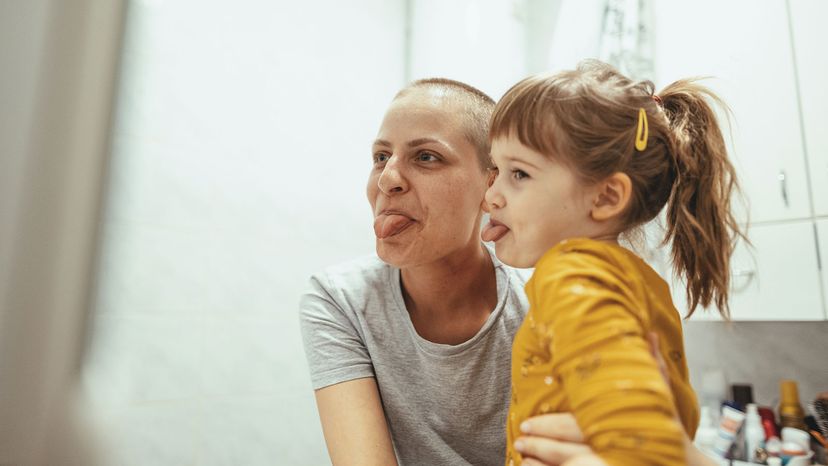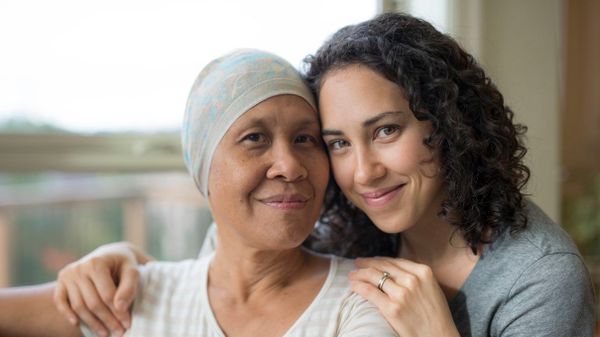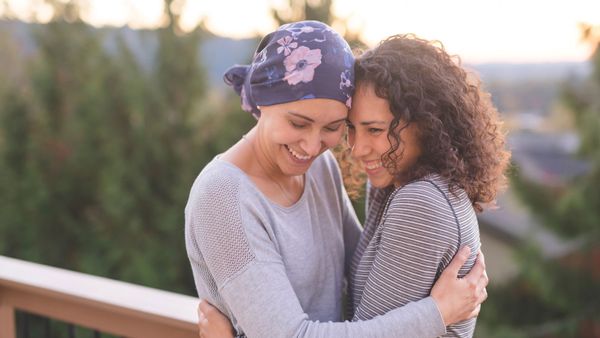
Tennessee resident Shannon Rollins is three years cancer-free from HER2-positive breast cancer now, but the path to this point was a tough one. Her initial treatment protocol lasted for an entire year and included chemotherapy, a double mastectomy and reconstruction. Although she tried to maintain a positive attitude most of the time, some days were harder than others. "I was pretty good at staying positive with outsiders. My family of course got to see my hard days," she recalls. "I felt like a burden to them when I couldn't process a complete thought and my body was weak."
Indeed, statements like "stay positive" and "attitude is everything" are what many people tell their loved ones going through cancer treatment. But is this mentality truly helpful to actually surviving cancer? Unfortunately, the answer is no. Studies reveal that a consistently positive attitude has no impact on cancer survival rates, according to the American Cancer Society.
Advertisement
For instance, a 2010 analysis of several studies on whether being positive or having a "fighting spirit" could improve cancer survival rates or extend the lives of people with cancer found there was no evidence of this. In fact, claims that the immune systems of cancer patients are enhanced by "positive psychology" were deemed implausible, and called "bad science" by the scientists who analyzed the research. "We urge positive psychologists to rededicate themselves to a positive psychology based on scientific evidence rather than wishful thinking," the study authors concluded.
Worse, patients confronted with the unrealistic demand of never-ending positivity are likely to feel even more burdened when they're confronted with the understandable anxiety, depression and other upset that so often accompany cancer diagnosis and treatment. Another study suggested that belief in positive thinking may lead people to think that cancer patients are to blame if they do not recover from the disease.
It's unrealistic to expect a cancer patient to remain positive all of the time, especially in the early days of diagnosis. "Cancer makes your life explode," says Elaine Smith, M.S., L.M.F.T., behavioral health therapist at Cancer Treatment Centers of America (CTCA) Atlanta, noting that there are many stressors that come with a diagnosis, including emotional, financial, work-related and family concerns. "On top of it is the biggest question: Am I going to live or die?"
The good news, however, is that realistic, balanced positivity can make certain aspects of the process more bearable.
Advertisement



